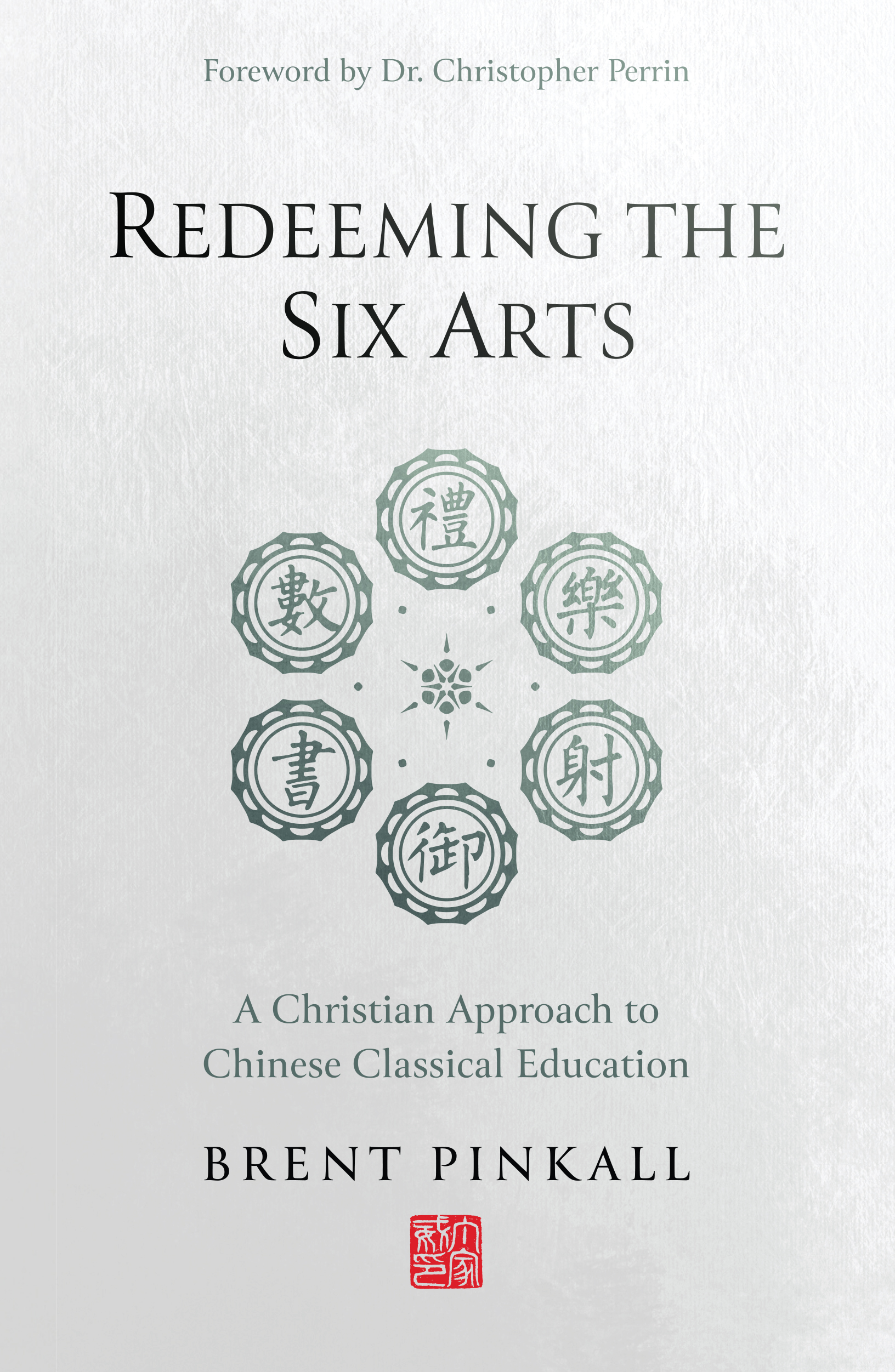About the Book
Christ does not erase our cultural identities. He redeems them.
As Classical Christian Education experiences a renewal in the West, more and more Chinese Christians are eager to participate in it—but they face a dilemma. Contemporary resources on classical Christian education almost unanimously define it as a Western tradition rooted in Western languages, Western literature, and the seven liberal arts. Does this mean that Chinese classical Christian schools must also adopt a Western curriculum? Or might they draw from their own Eastern tradition, one characterized not by men such as Plato, Herodotus, and Shakespeare but by Confucius, Sima Qian, and Li Bai?
In Redeeming the Six Arts, Brent Pinkall argues that classical Christian education is not fundamentally a canon of fixed texts or subjects but rather an approach rooted in the Fifth Commandment: Honor thy father and thy mother. Insofar as our ancestors differ, the languages, literature, and arts we study will also differ. Although Chinese Christians share the same “spiritual” fathers as their Western counterparts, their “earthly” fathers are different, and therefore their curriculum must reflect not only a shared “Christian” heritage but also a unique “classical” heritage.
In Part 1, Pinkall surveys the 4000-year history of Chinese classical education, a tradition rooted in the “six arts”: rites, music, charioteering, archery, script, and calculation. In Part 2, he explores the common grace of God in this rich but pagan tradition and considers how Chinese Christians might redeem it to his glory while avoiding attendant pitfalls, just as the church in the West redeemed the “seven arts” tradition inherited from their pagan, Greco-Roman ancestors. As readers compare the two traditions, they will find both glorious distinctives as well as remarkable similarities. They will discover that God reveals himself not only through the Logos but through the Dao.
Brent Pinkall is Lecturer of Rhetoric at New Saint Andrews College in Moscow, Idaho and has ministered in China for many years, promoting classical Christian education there. He has taught at numerous universities throughout China, including one of China’s only Christian liberal arts colleges, and has presented at numerous education conferences in the U.S. and overseas for organization such as the Association of Chinese Classical Christian Schools (ACCCS), the Association of Classical Christian Schools (ACCS), and the Society for Classical Learning (SCL).
“Brent Pinkall’s fine book marks an important step forward for the Classical and Christian education movement. We know that the gospel transformed the Greek- and Latin-speaking cultures of the Mediterranean region, giving rise to the educational tradition of the Christian West, which we celebrate. Important as this story is, it is not the only story worth telling. Christian education at its best is far greater than western Christendom, and even Homer nods. Pinkall reminds us that Chinese culture, too, bears the indelible stamp of the God in whom we live and are moved and have our being. May this book inspire a gospel transformation in the Chinese tradition of learning, a tradition that will one day fortify a Chinese Christendom with intellectual backbone. Indeed, the kingdom of God is neither Greek nor Roman; it is good news for those from every nation, from all tribes, peoples, and languages, who will stand before the throne and before the Lamb.”
Christopher Schlect, Ph.D., Fellow of History at New Saint Andrews College
“Brent Pinkall has used the analogy of a flourishing garden to describe classical Christian education in China. He has picked a rich, traditional metaphor for describing what education should be. Yes, children are like flowers or trees that we cultivate, water, and prune so that they bear fruit—the fruit of wisdom, virtue, and eloquence. We cultivate these trees or flowers with truth, goodness, and beauty. As we all know, however, China has its own famous trees and flowers, native to its soil. China has the China fir and the Yunnan cypress; America has its redwoods and the great American oak.
There are beautiful trees in China and in America—they differ in some ways, but they are all recognized as trees and recognized as beautiful. The same will be true as China renews classical Christian education. The renewed classical Christian education in China will be similar to the renewed classical Christian education in America, but also different in some important ways. Chinese classical education will grow like a China fir; American classical education will grow as an American oak.
They will be similar because both Chinese and American classical education will be renewing and embodying the same ideas—truth, goodness, beauty. Anything that is true, good, or beautiful rightfully comes from and belongs to God, no matter who discovers it and no matter how it is discovered. Plato said many true things; Confucius said many true things—yet they all rightfully belong to God.”
Christopher Perrin, M.Div., Ph.D. (excerpt from the Foreword), Co-founder and CEO of Classical Academic Press
